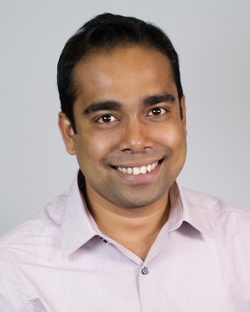Assistant professor joins Penn State to pave the way for smart cities
7/30/2020
By Erin Cassidy Hendrick
UNIVERSITY PARK, Pa. — In August, Satadru Dey will join the Penn State College of Engineering’s Department of Mechanical Engineering as an assistant professor.
An accomplished researcher who previously served as an assistant professor of electrical engineering at the University of Colorado Denver, Dey will be devoting his research energies to the development and sustainability of smart cities.
“As human civilization becomes more and more urban-centric with time, the vision of smart cities has been gaining increasing attention worldwide,” Dey said. “Motivated by this scenario, my research goal is to utilize control and learning theory in order to improve their energy efficiency, tighten safety and security, and maintain sustainability.”
In pursuit of this goal, Dey hopes to synergistically optimize the health and safety of batteries like those found within electric vehicles, power grids, laptops and smartphones; build a complex and resilient transportation infrastructure that is able to draw data from physical sources (like roadside sensors and radar) and social data (like GPS coordinates and tweets); and to protect these transportation systems with strong cybersecurity.
“If we can figure out how to create smart cities like this, it could help the world at large,” he said.
In addition to conducting his research, Dey hopes to make a positive impact on his students.
“When you are teaching engineering, you have to make sure you are connecting the material to a problem you’re solving,” he said. “It can be hard for students to see how the math translates into something meaningful, but that connection is important.”
To do this, Dey will create projects that allow students to directly apply the equations to a tangible and practically relevant scenario, such as estimating the charge of a battery using control theory principles.
“It’s important to take the material beyond theory and make connections to real-world scenarios,” he said.
Dey also hopes to infuse some strengths of online teaching, whether his classes are delivered in-person or virtually. For instance, he plans to record his lectures outlining the foundational material and make them available to students online before the scheduled class time.
“Then, we can use our time together to focus on discussions of the material and questions instead of a lecture,” he said. “I’ve found using this hybrid format can exponentially help students’ learning process.”
With ambitious research and teaching goals, Dey is eager to make his mark at the University.
“Penn State is an attractive research institution that provides an outstanding environment for budding researchers to grow,” he said.




